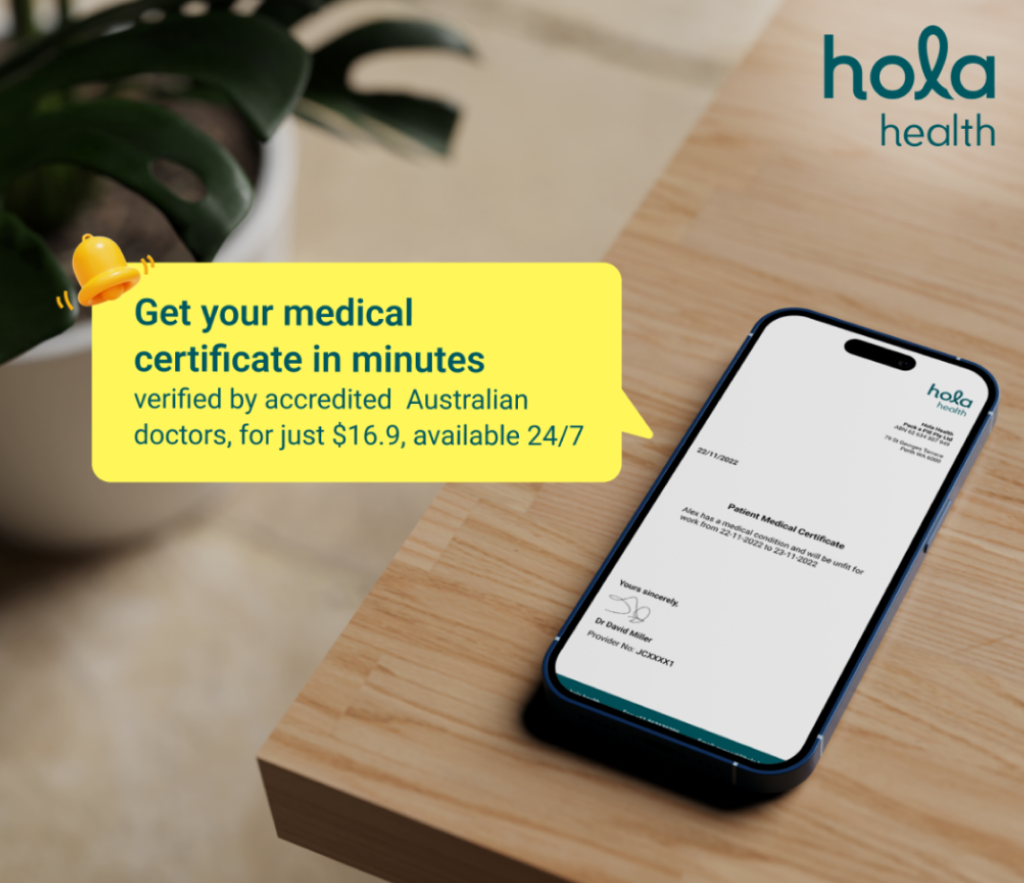- Home
- /
- Health Conditions
- /
- Chlamydia
Chlamydia Treatment
Seeking chlamydia treatment? Speak to an AHPRA-accredited online doctor within minutes, 24/7.
About chlamydia

Chlamydia is a sexually transmitted infection that happens because of unprotected sex. Chlamydia is Australia’s most reported STI, with 93,777 cases diagnosed in 2022. It often affects sexually active people under the age of 30 and can be easily passed through vaginal, anal or oral sex. Many people with chlamydia don’t experience symptoms, which is why regular STI screening is important if you’re sexually active. When symptoms do appear, they may include painful urination, abnormal discharge, pelvic pain, or bleeding between periods. In men, it can cause testicular pain and discharge. If left untreated, chlamydia can lead to serious health complications such as pelvic inflammatory disease (PID), infertility, or chronic pelvic pain in women, and epididymitis in men.
Medically reviewed by Dr. Ammar AL-ANI, MBChB, CCBST, AMC
When to see a doctor for chlamydia?
You should see a doctor or get tested for STIs regularly if you are sexually active or had unprotected sex. Even if you don’t have symptoms that indicate an STI presence, it is important to have regular screening especially if you are a male who is homosexual. Here’s when you should get an STI screening done or speak to a doctor about an STI:
- You’ve had unprotected sex with a new partner or someone who may have an STI.
- You or your partner experience symptoms such as painful urination, unusual discharge, pelvic pain, bleeding between periods, testicular pain, or discomfort during sex.
- You’ve been notified by a partner that they’ve tested positive for chlamydia.
- You’re sexually active and haven’t had an STI test in the past year, especially important for people under 30, as chlamydia often has no symptoms.
- You’re planning to start a new relationship and want peace of mind with an STI check.
Which body parts can be affected by chlamydia?
Chlamydia can affect cervix, urethra, anus, mouth, throat, testicles and eyes.
What are the symptoms of chlamydia in females?
The symptoms of chlamydia in females can manifest as:
- Changes in vaginal discharge
- Burning while urinating
- Pain during intercourse or sex
- Pain in the lower abdomen
- Bleeding or spotting between the periods or during sex.
What are the symptoms of chlamydia in males?
The symptoms in chlamydia for males can manifest as:
- Milky discharge from the penis
- Redness near the opening of the penis
- Infection or burning sensation while urinating
- Pain or swelling in one of the testicles
How is chlamydia diagnosed?
Chlamydia is diagnosed with a simple, quick, and reliable test. In most cases, your doctor will recommend either:
- A urine test, where you provide a sample to check for the presence of Chlamydia trachomatis bacteria.
- A swab test, where a healthcare professional or you (with instructions) use a cotton swab to collect a sample from the affected area, such as the cervix, vagina, urethra, throat, or rectum, depending on sexual practices and symptoms.
These tests are painless and can often be done at home or at a clinic.
How can you prevent chlamydia?
Preventing chlamydia involves a few simple but important steps to reduce your risk of infection:
- Use condoms correctly every time you have vaginal, anal, or oral sex, they’re the most effective barrier against chlamydia and other STIs.
- Have regular STI check-ups, especially if you’re under 30, have new or multiple partners, or are in a non-monogamous relationship.
- Avoid sharing sex toys or use a fresh condom on them and clean thoroughly between uses.
- Communicate openly with sexual partners about STI testing and sexual health.
- Limit the number of sexual partners, if possible, to lower exposure risk.
- Complete treatment properly if diagnosed, and ensure sexual partners are tested and treated too before resuming sexual activity.
What are the complications of chlamydia?
If left untreated, chlamydia can lead to serious health complications affecting both women and men:
- In women, it can cause pelvic inflammatory disease (PID), an infection of the reproductive organs that may lead to chronic pelvic pain, infertility, and ectopic pregnancy (a dangerous situation when pregnancy happens outside the uterus).
- In men, chlamydia can cause epididymitis, an inflammation of the tube that carries sperm, which may result in pain and, rarely, infertility.
- Both men and women can develop reactive arthritis, a painful joint condition triggered by the infection.
- Newborns born to infected mothers risk eye infections and pneumonia.
- Untreated chlamydia also increases the risk of acquiring or transmitting HIV.
What happens if I don't treat chlamydia?
If you don’t treat chlamydia, it can lead to serious health complications even if you have no symptoms. In women, untreated chlamydia can spread to the uterus and fallopian tubes, causing pelvic inflammatory disease (PID) which may lead to infertility or ectopic pregnancy. In men, it may lead to epididymitis, causing testicular pain and swelling, and in rare cases, fertility problems. Both men and women can develop reactive arthritis, a condition causing joint pain, eye inflammation, and urinary issues.
Should I avoid sex during treatment? How long should I wait?
Yes, you should absolutely avoid sex during chlamydia treatment to prevent passing the infection on or getting re-infected. Here’s what most Australian health guidelines recommend:
- Avoid any sexual contact (vaginal, anal, or oral) until you and your partner/s have completed the full course of medication.
- After finishing treatment, wait at least 7 days before having sex again, even if your symptoms clear up sooner.
- If your partner is also being treated, both of you should finish the course and wait the full 7 days to avoid re-infection.
It’s also a good idea to get a follow-up STI test in 3 months, especially if you’re under 30, had new partners, or are in a high-risk group.
Can a telehealth appointment help in treating chlamydia?
Gain access to discreet care for chlamydia and any other sexually transmitted infections through Hola Health’s 24/7 telehealth service in Australia. Get a telehealth appointment and speak to an AHPRA-accredited health practitioner within minutes from the comfort of your home. To speak to a doctor online:
- Visit Hola Health website or download the Hola Health app.
- In telehealth consultations, click on see a doctor and choose a consultation type.
- Fill in your details along with Medicare information and payment details.
- Connect with a qualified online doctor within minutes.
- If the doctor approves, you will receive either medical certificates or GP referrals via email and online scripts via SMS.
How can I get an online prescription via telehealth?
Through Hola Health’s online scripts service, you can request for an online prescription from registered telehealth practitioners. To get a script online instantly, here’s a step-by-step guide:
- Go to online scripts page in Hola website or app.
- Request an instant script and choose a consultation type.
- Fill in your details along with Medicare information and payment details.
- Speak to a telehealth doctor within minutes and discuss your medical concerns.
- If approved, an instant scripts online will be sent to you via SMS.
- You can dispense your medication from any pharmacy nearby or get medicine delivery home from online pharmacy delivery.
Can I request a medical certificate online?
Yes, you can get a valid medical certificate from Hola Health approved by a licensed prescriber. These medical certificates can validate your absence from work, school, university or any other institution. Most employers and institutions accept these online medical certificates. It is important to check your company’s HR policy or university or school rules to understand their take on online doctor certificates.
What type of referrals would I get online for chlamydia?
If you’re being treated for chlamydia, a telehealth doctor or GP can provide several useful online referrals to support your care and recovery:
- Pathology referrals for STI screening to confirm the diagnosis or check for other infections.
- Specialist referrals to gynaecologists or other specialists if complications or persistent symptoms arise.
Are Hola Health consultations secure and private?
Yes, Hola Health online doctor consultations follow strict guidelines on data protection and patient confidentiality. Patient data is saved in secure encrypted servers in Australia making Hola Health telehealth consults secure and private.
How can we help?
Trusted by thousands of Aussies, Hola Health offers a variety of telehealth solutions such as:
- Online doctor consultations through registered practitioners from the comfort of your home.
- 24/7 medical certificates for work or uni from anywhere in Australia.
- Quick instant scripts online from qualified medical practitioners available 24/7.
- Bulk-billed online mental care plans with zero cost to you.
- Online GP referrals in Australia to specialists, pathology tests, radiology tests and blood tests.
- Online chemist delivery to your doorstep.
Talk to a doctor today
Instantly connect to a registered practitioner within 15 minutes from anywhere in Australia, 24/7 for:
- General consults
- New & repeat scripts
- Referrals
- Medical certificates
- Mental health plans

Read more about chlamydia
Access telehealth services
Doctors Brisbane | Doctors Melbourne | Doctors Perth | Doctors Sydney | Doctors near me | Doctors Canberra | Doctors Adelaide | Doctors Darwin | Doctors Hobart
After hours Doctor Brisbane | After hours Doctor Melbourne | After hours Doctor Perth | After hours Doctor Sydney | After hours Doctor Hobart | After hours Doctor Gold Coast | After hours Doctor Canberra | After hours Doctor Adelaide | After hours Doctor Darwin | After hours GP | After hours doctor
Medical certificate | Medical certificate online for work | Medical certificate for school | Medical certificate for Uni | Medical certificate for stress | Carer’s leave certificate | Medical certificate NSW | Medical certificate QLD | Medical certificate VIC | Medical certificate WA | Doctors certificate online | Multi-day Certificate | Sick certificate online | GP medical certificate | Doctors note | Telehealth medical certificate | 2-day medical certificate | Medical certificate for sick leave
Instant scripts | eScript | Online prescriptions | Online prescriptions Sydney | Online prescriptions Melbourne | Online prescriptions Perth | Online prescriptions Brisbane | Online Rx prescription
Online referrals | Blood test referral | X-Ray referral | Pathology referral | Radiology referral | Specialist referral | Gynaecologist referral | Audiology referral | Ophthalmologist referral | Paediatrician referral | Ent specialist referral | Endocrinologist referral | Dermatologist referral | Urologist referral | Gastroenterologist referral
Telehealth appointment | Online Doctor | Bulk Billing Doctors | Doctors on-demand | Instant consult | Covid antiviral | Dial a Doctor | Online GP | Doctor appointment | Bulk-billing doctors | Telehealth pricing | GP online chat | Australian doctor | Web doctor | Home doctor | 24-hour doctor















